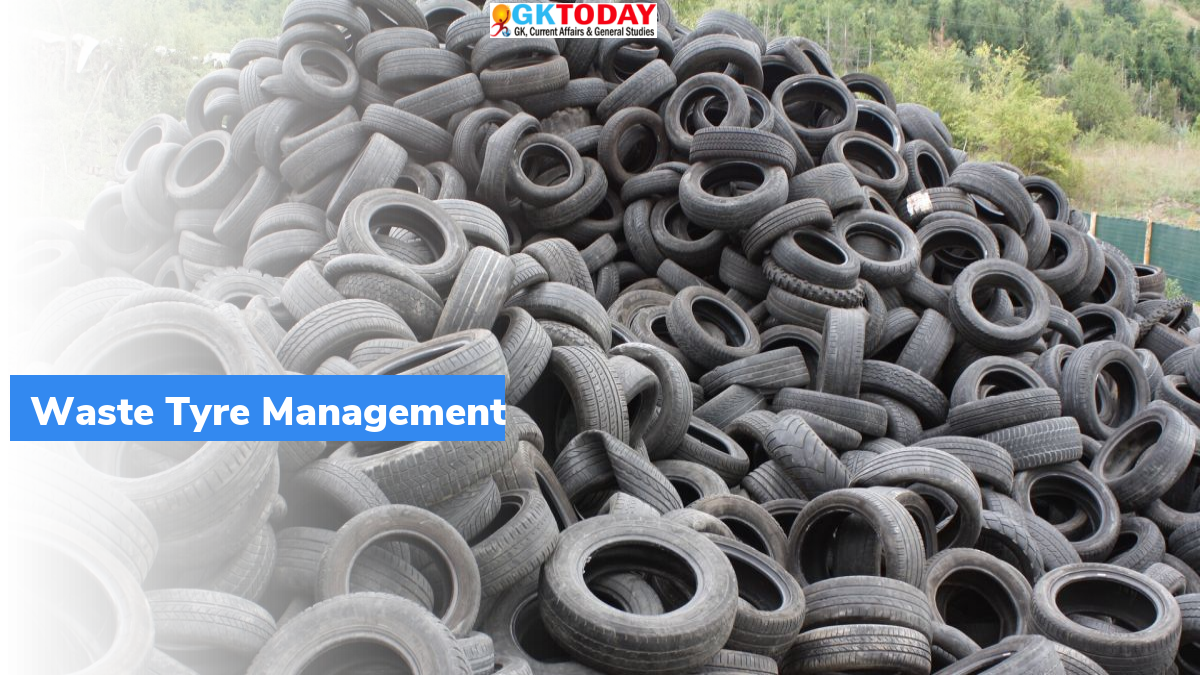Regulations on Waste Tyres Management
On January 5, 2022, Ministry of Environment, Forests & Climate Change shared the draft notification for regulations on “extended producer responsibility (EPR) for waste tyres”.
Key facts
- The regulation will be effective in the fiscal year 2022-23, if finalised.
- Draft notification was shared in because, NGT data shows that India discards around 275,000 tyres each year, but there does not exist any comprehensive plan for them.
- Furthermore, around 3 million waste tyres are imported for recycling.
Background
On September 19, 2019, NGT had directed the Central Pollution Control Board (CPCB) to draft a comprehensive waste management plan for waste tyres & their recycling. NGT directed this in a case related to absence of proper management of End-of-Life Tyres/Waste Tyres (ELTs). In this case, petitioner had said that pyrolysis industry in India produces inferior quality products, which should be banned for preventing environmental damage. Petitioner also highlighted that industry emits highly carcinogenic or cancer-causing pollutants, which are harmful for respiratory system.
Recycling of waste tyres
Waste tyres are recycled as reclaimed rubber, crumb rubber modified bitumen (CRMB), crumb rubber, pyrolysis oil/char and recovered carbon black.
EPR obligations under draft notification
The draft notification provides for:
- 2022-23: EPR obligation of 35 per cent of the quality of tyres manufactured or imported in 2020-2021.
- 2023-24: EPR obligation of 70 per cent of the quantity of new tyres manufactured or imported in 2021-22
- 2024-25: EPR obligation of 100 per cent of the quantity of new tyres manufactured or imported in 2022-23.
- After 2024-25, the EPR obligation will be 100 per cent of the quantity of new tyres manufactured or imported in the preceding year.
- For units established after April 1, 2022, EPR obligation will start after two years. It will be 100 per cent of the new tyres manufactured or imported in the previous year.
Who will be covered under the EPR obligations?
Producers and recyclers of waste tyres will be covered under the EPR obligations. Registration will be compulsory and no entity can carry out any business without registration.
What is Extended Producer Responsibility?
It means responsibility of producer of tyres are entitled to ensure environmentally sound management of such waste tyres in accordance with the provisions of this regulation.
Month: Current Affairs - January, 2022
Category: Environment Current Affairs • Legal & Constitution Current Affairs


